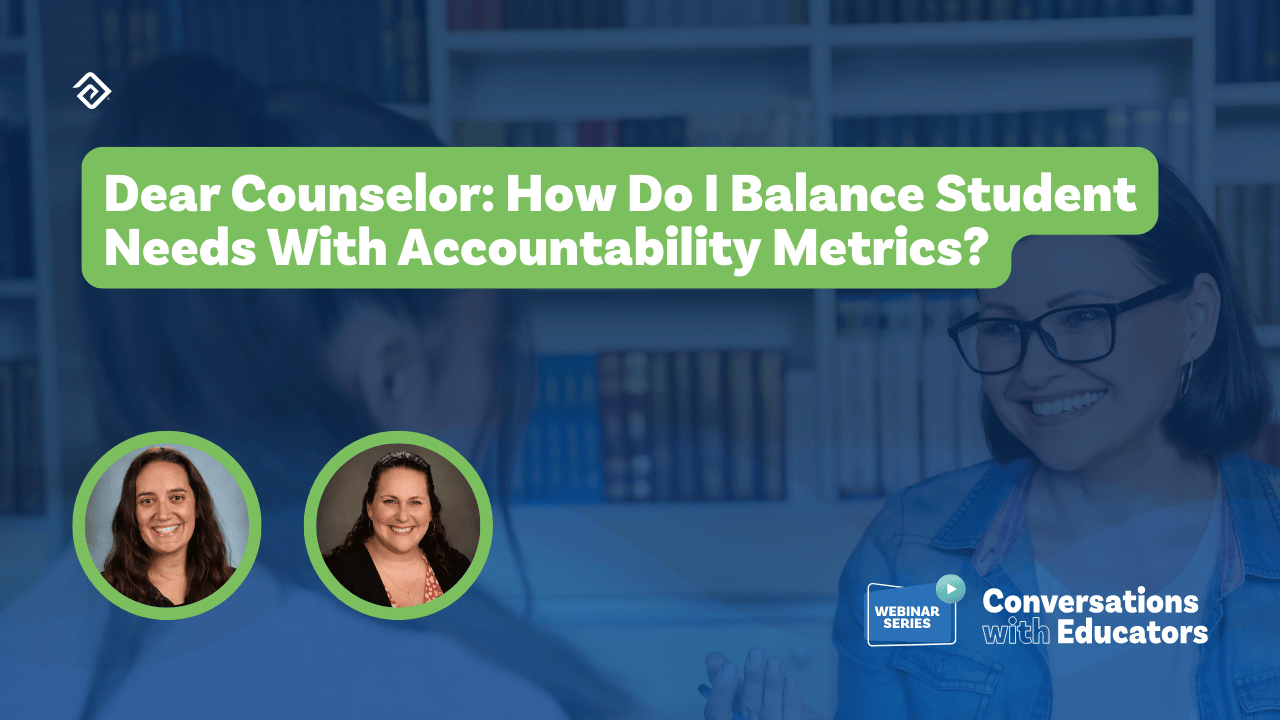An Exploration of Educator Growth, Evaluation Overhauls, and Teacher Identity

In our Conversations with Educators webinar, Empowering Teacher Growth Through Collaboration, Dr. Brian Davis, an experienced educator and administrator, shared his valuable insights into creating an educational environment where teachers are not only evaluated but also nurtured and celebrated for their dedication and innovation. Below are some key takeaways from the webinar that shed light on the pivotal role of collaboration, feedback, and empathetic leadership in cultivating a culture of continuous growth and excellence among educators.

Why is teacher growth such a passion for you?
Dr. Brian Davis: This is very near and dear to my heart and the work I do. As a teacher, I always wanted feedback and wanted to know how I could get better. When I transitioned into a leadership role, I aimed to positively impact the evaluation process and what happens in classrooms.
This was also the focus of my doctoral research. My dissertation was based on the cross section of the evaluation adjustment model and teacher identity. So essentially, how are teachers making sense of the work that they are doing in their classrooms while also being observed and evaluated on that work.
Can you elaborate on the teacher identity influences you discovered?
Dr. Brian Davis: I found three primary influences on teacher identity: professional, situational, and personal. Understanding these influences helps create a holistic approach to teacher growth.
Professional influences involve social and policy expectations, such as state standards and evaluation systems. Situational influences are socially located aspects, considering the unique dynamics of the school and district. Personal influences, the 'why' factor, delve into why teachers chose education and what drives them every day.

Your research also explored the career stages of teacher identity. Can you share some insights into that?
Dr. Brian Davis: I identified several different career stages: survival mode (1-3 years), stabilization (4-6 years), experimentation or activism (7-18 years), serenity or conservatism (19-30 years), and disengagement (31-40 years). Understanding these stages can help administrators tailor their approach to individual teachers' needs.
Although I didn't share these stages with the teachers I interviewed during my research, I found it to be a valuable framework afterward. It provides a nuanced understanding of where teachers are in their professional journey. For example, a teacher in the early years might need more guidance and reassurance, while someone in the experimentation phase may benefit from discussions around trying new approaches. It's a tool for empathetic leadership.
When dealing with disengagement or resistance to change, how can administrators navigate those situations?
Dr. Brian Davis: Approaching these situations with an understanding of the teacher's career stage is crucial. For those in the disengagement phase, it's about finding ways to rekindle their passion or addressing concerns. With those resistant to change, it's important to show the benefits for students and the institution, reinforcing the 'why' of education.
Can you elaborate on your findings regarding teacher feedback and their receptiveness to it?
Dr. Brian Davis: In general, teachers wanted the feedback. Surprisingly, there wasn't the resistance I anticipated. The key was making sure the feedback was worthwhile. What stood out was that they appreciated professional discourse. Making time for these conversations and prioritizing them emerged as a crucial theme from my research.
Managing time for evaluations can be challenging. How do you stay true to your schedule?
Dr. Brian Davis: I prioritize evaluations by blocking out dedicated time on my calendar. I communicate to others that during these periods, I can't meet unless there's a real emergency. Staying true to commitments helps teachers understand the importance I place on the evaluation process.
Could you share some essential aspects of building rapport through the evaluation process?
Dr. Brian Davis: Transparency is key. Being open and upfront helps dispel the "Gotcha" mentality. Accountability is also crucial, both for teachers and administrators. Holding everyone to consistent expectations and behaviors is essential. Specificity is another factor. Providing specific details, like the number of students engaged or specific observed behaviors, is crucial. Frequency is another vital aspect—being present in classrooms beyond formal observations facilitates better conversations.
How can administrators balance the need for evaluations with creating a positive and collaborative learning environment for teachers?

Dr. Brian Davis: It's about framing evaluations as a part of the learning process, not a judgment. Emphasizing collaboration, providing constructive feedback, and aligning evaluations with professional growth contribute to a positive environment. It's a shift from the traditional 'gotcha' mindset to one of continuous improvement.
Conclusion
In the realm of education, fostering a culture of continuous growth and collaboration is paramount for both educators and administrators. The journey towards empowering teacher growth is a multifaceted and collaborative endeavor. Dr. Davis's insights provide a roadmap for educators and administrators alike, emphasizing the importance of understanding teacher identity, recognizing career stages, fostering constructive feedback, and creating an environment that nurtures continuous improvement.
Take the next step in revolutionizing your staff evaluation process and fostering educator growth with our comprehensive teacher evaluation tool. Book a demo today to explore how our collaborative, web-based performance portal will meet the unique needs of your district, streamlining the evaluation journey and providing actionable insights for continuous improvement.
More Great Content
We know you'll love




